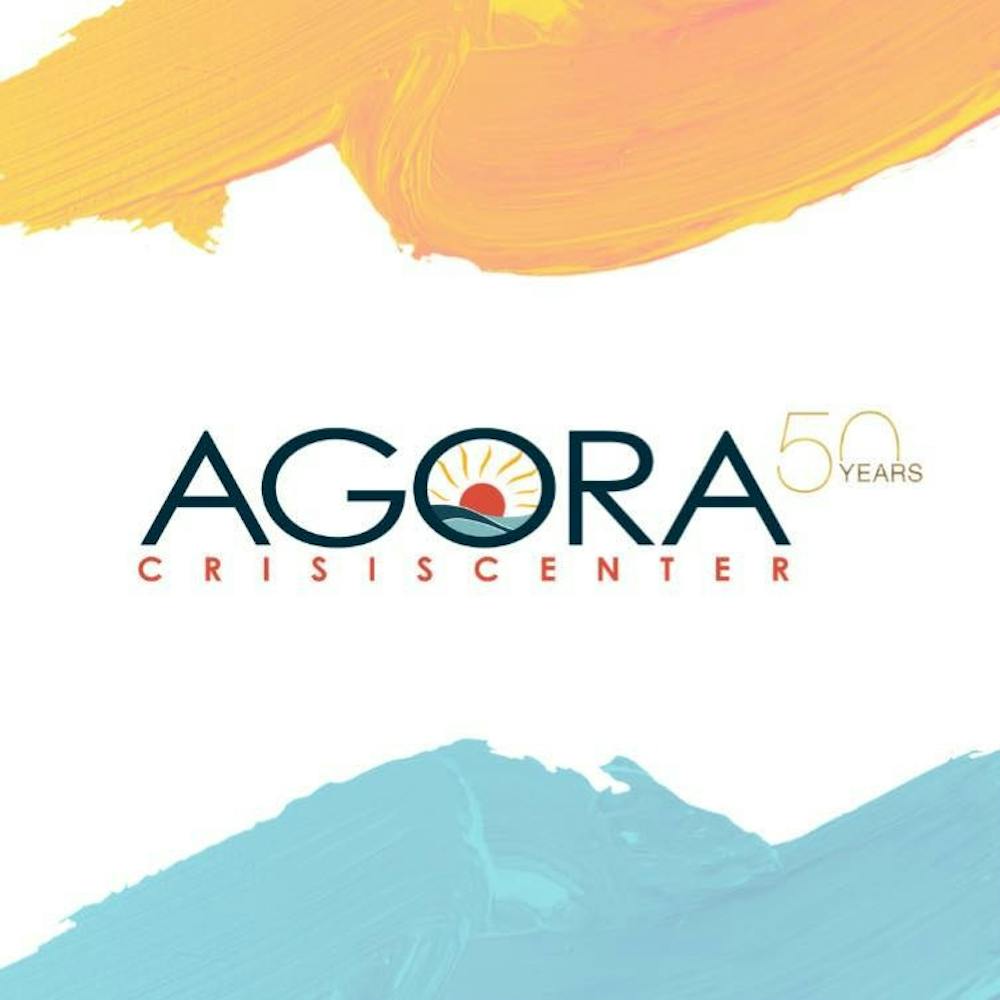The Agora Crisis Center, opened on the University of New Mexico’s campus in the 1970s, is celebrating its 50th anniversary this year.
According to the Agora website, the crisis center was “one of the first crisis centers of its kind,” formed in response to a student who took their own life after unsuccessfully seeking help.
The organization’s goal from its inception has been to provide an outlet for anyone who needs to talk to someone, with a focus on providing support to UNM students.
“We support students through their daily lives, especially as things are changing with the pandemic. There’s a lot of stressors from just having schoolwork to (coping with) new environments,” Alyssa Jaramillo, a student outreach coordinator at Agora, said. “We just want to be another helping hand in case there isn’t anyone else to turn to.”
Molly Brack, the director of the Agora Crisis Center, has worked at the center since she began volunteering in 1991. Over the years, Agora has expanded and grown from its humble beginnings.
“When I took over as director, we had about 10 volunteers, and now we have over 150. Around that same time, we were also taking about 1,200 calls a year, and now we take about 30,000 calls a year,” Brack said. “We were able to start finding money for marketing and outreach. As soon as we did that, people became more aware of us and started calling.”
According to Brack, Agora was also one of the first university-run crisis centers to offer online emotional support.
“We helped write the national standards for the way chat (support) is done, and we are part of the National Suicide Prevention Lifeline network both on chat and phone,” Brack said.
Over the last few months, the coronavirus pandemic has forced Agora to make changes to the way it operates, with new restrictions including operating at a limited capacity, wearing a mask and keeping a minimum distance of six feet between individuals. Agora is also running on a limited number of volunteers who take phone calls at the center’s building, according to Brack.
“Many of our volunteers who can’t come into the center are taking chat shifts from home,” Brack said. “We don’t ever have people do phone calls from their house, but (with) chats they can because it’s all done online, and I can supervise that.”
Jaramillo said most of the outreach Agora currently does is limited to virtual interactions. However, as the crisis center goes forward, both Brack and Jaramillo hope to make changes that will benefit Agora in the long run.
“Agora could improve with working with other student organizations more,” Jaramillo said. “I feel like we could branch out a little more to different ones and offer more workshops or (work) on events together.”
Get content from The Daily Lobo delivered to your inbox
As Agora celebrates 50 years of service, Brack reflected on the work that volunteers and staff have done over the years to keep the center running.
“We’re just excited to be having our 50th anniversary — we were hoping to have a big in-person party and a reunion of old volunteers, and we hope to still do that next year,” Brack said. “I’m just very proud of the work the volunteers have continued to do during this time. It’s not been easy, and they’ve provided support and comfort to thousands of people during the pandemic.”
Hannah John is a freelance reporter at the Daily Lobo. She can be contacted at news@dailylobo.com or on Twitter @yesitshannahj






